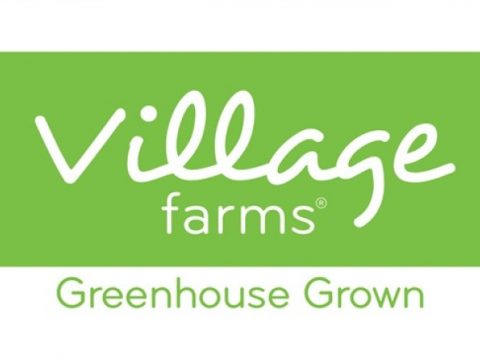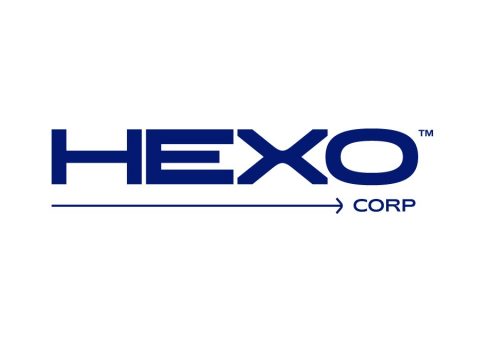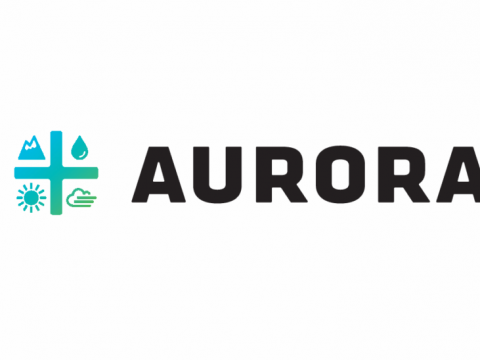Halo Collective Inc. (“Halo” or the “Company”) (NEO: HALO), (OTCQX: HCANF), (Germany: A9KN) today announced its financial and operational results for three months ending March 31, 2021 (“Q1 2021”). The Company reported record revenues of $9.9 million for Q1 2021, a 123% increase compared to the previous year. This included the sale of over 5.2 million grams of cannabis products principally to dispensaries in Oregon and California, a 253% year over year increase. Organic revenue growth was 62%, the highest organic growth recorded in the Company’s history. The Company also reported a gross profit of $2.0 million, an increase from $(172.2k) for the three months ended March 31, 2020 (“Q1 2020”). The adjusted gross profit was $2.2 million (compared to $117.4k in Q1 2020). The reported gross margin in Q1 2021 was 19.7% in comparison with -3.9% in Q1 2020. Complete results are reported in the Company’s consolidated financial statements for the three months ended March 31, 2021 (the “Consolidated Financial Statements”) and associated management’s discussion and analysis (the “Q1 2021 MD&A”).
The volume and timing of distributions under the ATM Program, if any, will be determined in the Company’s sole discretion. The ATM Program is designed to provide the Company with additional financing flexibility should it be required in the future. The Company intends to use the net proceeds from the ATM Program, if any, for general corporate purposes, working capital needs and capital expenditures, including the repayment of indebtedness. As Common Shares distributed under the ATM Program will be issued and sold at the prevailing market prices at the time of each sale, prices may vary among purchasers during the period of the ATM Program.
In response to the Company’s record results, CEO and Co-Founder Kiran Sidhu commented, “Now, in 2021, we will begin to reap the rewards that we initiated with the change in our product range in 2020. We exceeded our own sales forecast by almost $1.0 million, and we believe a further increase in sales is possible. With the positioned start-up of Bar-X Farms, the first major sales by Bophelo, the start-up business with FlowerShop* which recently sold out its initial launch of 1,200 units in a few hours, the expected sales by Canmart, and the three planned dispensaries in the Hollywood area, we remain on target to achieve our overall revenue target of $75.0 million.”
Philip Van Den Berg, CFO and Co-Founder continued, “The Q1 results demonstrate we are on target to the 2021 guidance previously communicated. When we released our financial statements for the year ended December 31, 2020, we provided guidance of annual revenues of $75 million for the fiscal year ended 2021 and positive EBITDA by the fourth quarter of 2021. Our first quarter showed that the core business is growing fast, and margins are improving across all operations. With the exception of Oregon cultivation and potentially California dispensary assets, the Company will be slowing down our acquisitions which should significantly reduce our corporate costs, in turn leading the Company to profitability.”
Halo Collective will host a conference call and audio webcast with Kiran Sidhu, CEO & Co-Founder, Philip Van Den Berg CFO, and Katie Field, President, at 4:15 PM Eastern Standard Time on May 18, 2021.
A live audio webcast will be available for registration.
Webcast Details
Date: May 18, 2021
Time: 4:15 p.m. EDT / 1:15 p.m. PDT
Presenters: Kiran Sidhu, CEO & Co-Founder Philip van den Berg, CFO, and Katie Fields, President
Registration Link: https://halocollective.clickmeeting.com/q1-2021-earnings-call
Join Via Mobile Application: Event ID: 199-175-134
Latest Corporate Presentation: Download here
Q1 2021 FINANCIAL RESULTS
Revenue
Revenues in Q1 2021 were $9.9 million compared to $4.4 million in Q1 2020, a 123% increase. Total sales were 5,230,019 grams (Q1 2020: 1,481,756 grams), a 253% increase. The average mix price was $1.90 (Q1 2020: $3.00 per gram), a 36.7% decline, explained by a higher proportion of lower priced flower, pre-rolls, trim and fresh frozen in comparison with Q1 2020. Organic revenue growth was 62.4%.
The Company’s subsidiaries ANM Inc. (“ANM”), Mendo Distribution and Transportation LLC (“MDT”), and Halo Winberry Holdings, LLC (“Halo Winberry”) all reported strong performances in the period under review. ANM reported revenues of $4.4 million, a 11.5% increase over Q1 2020. MDT reported revenues of $1.9 million, a 346% increase over Q1 2020. Coastal Harvest reported revenues of $3.4 million, an 88.6% increase over Q1 2020. Halo Winberry reported revenues of $3.4 million. Halo Winberry’s results were not included in the three months ended March 31, 2020.
ANM
In Q1 2021, ANM, the owner of the Company’s facility in Oregon, sold 1,320,420 grams of shatter, cartridge oil, live resin, tinctures and gummies, flower, and pre-rolls (Q1 2020: 1,438,451 grams), an 8.2% decrease. Sales of oil and extracts were 516,412 grams (Q1 2020: 535,725 grams), a 3.6% decrease. The wholesale price of oils, extracts and edibles increased by 15.6% to $6.47 (Q1 2020: $5.60 per gram). Flower sales in Q1 2021 were 705,970 grams (Q1 2020: 833,037 grams), a 15.3% decrease. The wholesale price of flower increased by 15.7% to $1.24 per gram (Q1 2020: $1.07 per gram). Pre-roll sales were 98,038 grams (Q1 2020: 69,689 grams), a 40.7% increase. The wholesale price of pre-rolls increased by 94.6% to $2.06 (Q1 2020: $1.06 per gram). The average mix-price across all products was $3.35 per gram equivalent (Q1 2020: $2.76 per gram), a 21.4% increase.
MDT
In Q1 2021, MDT, the owner of the facility in Ukiah, sold 193,374 grams of distillate, live resin, gummies and pre-rolls (Q1 2020: 37,263). The average price decreased 4.6% to $9.90 (Q1 2020: $10.38).
Halo Winberry
In Q1 2021, Halo Winberry, a fully owned subsidiary of the Company, received conditional approval to execute the asset purchase agreement to acquire the assets of Herban Industries OR LLC (“Winberry”), and therefore consolidated and recorded the results of Winberry under Halo Winberry. Consequently, Halo Winberry sold 2,529,599 grams of oil and extracts, shatter, live resin, edibles, flower, pre-rolls and trim at an average mix-price of $1.35. Prices ranged from $15.78 per gram for oil, $11.55 for live resin, $0.15 for extracts (balm, lotions), $0.86 for edibles, $1.70 for flower, $9.70 for pre-rolls to $0.14 per gram for trim.
Gross Profit
The Company reported a gross profit of $2.0 million (Q1 2020: gross loss $172k). Adjusted for the loss on biological assets, gross profits were $2.2 million (Q1 2020: $117k). The reported gross margin was 19.7% (Q1 2020: -3.9%). Adjusted for gains and losses on the value of biological assets the gross margin was 22.1% (Q1 2020: 24.0%).
The month of March was specifically strong with an aggregate gross margin across operating units of 27.9%. Broken down by subsidiaries, ANM was 23.6%; MDT was 29.7%; Coastal Harvest was 31.8%; and Halo Winberry was 33.6%.

Operating Expenses & EBITDA
The loss before interest, tax, depreciation & amortization and adjusted for non-cash items (“adjusted EBITDA”) was $6.0 million (Q1 2020: loss $4.3 million). Although gross profits increased, operating expenses increased by $2.1 million to $9.3 million, a 29.5% increase (Q1 2020: $7.2 million). Cash based operating expenses increased by $1.5 million to $8.5 million, a 21.3% increase (Q1 2020: $7.0 million). As the Company continues to execute its business plan, operating expenses are projected to level off and could potentially decrease.
The first-time contribution of Halo Winberry added $870k to operating expenses. Excluding the first-time consolidation of Halo Winberry, operating expenses increased by 17.4%, which was anticipated. Halo Winberry contributed operating profit in Q1 2021. Closing costs in relation to the Halo Winberry acquisition included in professional expenses were $401, 025. The acquisition met the definition of a business combination. Under IFRS 3, closing costs for a business combination are expensed.
Salary expense increased with the onboarding of new employees associated with the various acquisitions over the past year. Professional expenses decreased 15.8%. Sales and marketing expenses doubled to $1.5 million (Q1 2020: $749k). Sales and marketing expenses increased at MDT following rapid sales growth, and at the corporate center following increased expenses for social media and other marketing service providers. This is in line with Company’s strategy to increase brand awareness for the Company’s core brands such as Hush but also in respect of the launch of new brands such as FlowerShop*. In March 2021, the Company terminated its California direct sales force and transferred the accounts to distributor’s sales force which converted a fixed cost to a variable cost and reduced management overheads.
Overall operating expenses increased year over year by 29.5% and on a like for like basis, excluding acquisitions, increased by 17.4%. This is compared to revenues which increased 253% overall, and 62.4% on an organic basis.
Cash
As of March 31, 2021, the Company had unrestricted cash available in the amount of $10.3 million and working capital in the amount of $22.5 million. Cash used in operations in Q1 2021 was $9.4 million, cash used for investing was income of $1.0 million, and cash raised from finance activities was $15.9 million. Total cash inflow was $7.6 million.
On February 2, 2021, the Company closed an overnight marketed public offering of units of the Company for aggregate gross proceeds of $7.2 million (Note 17 Condensed Interim Consolidated Financial Statements). On February 19, 2021, the Company closed an overnight marketed public offering of units of the Company for aggregate gross proceeds of $9.1 million (Note 17 Condensed Interim Consolidated Financial Statements).
Corporate M&A Activity
In Q1 2021, the Company progressed on five mergers or acquisitions. For details, please refer to Note 14 in the Consolidated Financial Statements, which are available on SEDAR. These transactions include one cultivation company, being the assets of Winberry, and two dispensaries (SDF11 LLC and ZXC11 LLC) and the associated management companies (Black & Crimson LLC and POI11 LLC).
With Halo Winberry, the Company purchased secured debt owed to Evolution Trustees Limited. On January 16, 2020, Halo Winberry, a wholly owned subsidiary of the Company, received conditional approval from the Oregon Liquor Control Commission to complete the Company’s proposed purchase of certain assets of Winberry as previously disclosed. The Company acquired fixed assets of $104k, and working capital of $1.4 million. Intangible assets included the Winberry licenses and Winberry brands. As at March 31,2021, the carrying value of intangible assets was $6.5 million (December 31, 2020: Nil).
On March 2, 2021, the Company issued 23,690,385 Halo common shares (“Halo Shares”) as a pre-closing non-refundable deposit in relation to the closing of the acquisition of SDF11 LLC, a dispensary license applicant on Franklin Avenue, LA. Additionally, Halo issued 118,650,349 Halo Shares to close on the acquisition of the associated management company, Black & Crimson LLC.
On March 2, 2021, the Company issued 23,690,385 Halo Shares as a pre-closing non-refundable deposit in relation to the closing of the acquisition of ZXC11 LLC, a dispensary license applicant in Santa Monica, LA. Additionally, Halo issued 118,650,349 Halo Shares to close on the acquisition of the associated management company, POI11 LLC.
Moving Forward in 2021
The Company is actively reducing operating expenses to improve EBITDA margin going forward in 2021. These cost reductions are occurring across most of the Company’s entities including corporate, ANM, Halo Winberry, MDT and Coastal Harvest. At the corporate center, the Company plans to reduce legal cost by hiring an in-house General Counsel and believes costs will decrease naturally with reduced Merger & Acquisition activity. In addition, at ANM and Halo Winberry, costs are expected to improve through restructuring and consolidation of the two companies. The Company also experienced farm improvements in Q1 2021 that are not yet capitalized and will decrease naturally now that the farm is ready for 2021 planting. At MDT, overheads will continue to decrease now that the entire salesforce has been outsourced to a third-party distributor. Below the Company has outlined a detailed strategic plan to grow revenue and improve margins across all markets.
Oregon
Halo anticipates undertaking the following activities in an effort to grow and improve the Company’s business in Oregon:
- Bring in house manufacturing of all key SKUs to lower the wholesale price and increase profit margins;
- Launch new flavor SKUs of Winberry Farms distillate cartridges and infused pre-rolls;
- Launch Hush 5-piece vegan gummies as well as re-formulate and update current gummy offerings, specifically the one-piece gummy;
- Bring all distribution in house rather than using third-party distributors to increase efficiency in distribution and lower cost;
- Increase purchasing of third-party flower to increase availability and sales of flower products;
- Expand the offering of third-party brands to the Company’s existing dispensary customer base, helping to increase distribution revenue;
- Acquire indoor cultivation and more outdoor and greenhouse cultivation to increase the Company’s access to quality raw materials and increase consistency of the supply chain; and,
- Establish a central cannabis processing unit in Southern Oregon to reduce processing costs from over $100 per pound to an anticipated target of $60 per pound.
California
Halo anticipates undertaking the following activities in an effort to grow and improve the Company’s business in California:
- Complete move to full-service distribution partner, Greenstone, increasing immediate store sales;
- Launch Hush live resin pucks and carts into the California market to fill void of our current third party distribution partner;
- Launch FlowerShop* Bouquet Packs and Bud Vase flower products to expand higher price offerings;
- Re-launch Winberry Farms distillate vape products into the California market;
- Launch the Company’s retail footprint by opening three retail dispensaries in the City of Los Angeles;
- Identify opportunities to expand or build retail dispensary store clusters in Southern California and in the Bay Area;
- Build large, scalable indoor cultivation footprint by commencing buildout the UVI indoor facility; and
- Commence operations of Triangle Canna Corporation (“Triangle”) with at least one outdoor grow cycle in partnership with Green Matter. Halo owns 44% of Triangle and has a favorable off take agreement which is expected to contribute revenue and gross profit by November 2021 which has not been included in the Company’s forecast.
International
Halo anticipates undertaking the following activities in an effort to grow and improve the Company’s business internationally:
- Finalize Good Agricultural and Collection Practices (“GACP”) certification at the cultivation site operated by Bophelo Bioscience & Wellness (Pty) Ltd. (“Bophelo”), which includes the installation of security perimeter fencing and camera systems, completion of ablutions and a cafeteria, completion of post-harvest processing facilities, and the review, approval and implementation of 245 Standard Operating Procedures. Bophelo is currently in the final stage of obtaining approval with less than 10% of the certification requirements remaining to complete;
- Continue to aggressively scale growing capacity at Bophelo via site development and build-out of 40,000 square feet of Cravo Green Houses by the end of October and the build-out of an additional 60,000 square feet of Cravo Green Houses by the end of the year;
- Complete the build out of a small extraction facility at Bophelo to conduct training of local personnel in the handling of explosive gases (butane/propane) and handling of flammable liquids (alcohol);
- Develop and implement a business plan to secure sales to patients at Canmart Ltd. (“Canmart”) in the United Kingdom, while also starting the planning and build out of a 5,000 square foot European Union Good Manufacturing Practices certified facility at Canmart for processing of cannabis;
- Evaluate the further development of the Canmart facility to also encompass cultivation and/or manufacturing oils and concentrates subject to local regulations; and
- Close the acquisition of Kushbar retail dispensaries in Alberta and continue to add profitable dispensaries. This transaction is expected to be completed in July 2021.
Non-IFRS Financial Measures
Organic Revenue, Adjusted Gross Profit, EBITDA and Adjusted EBITDA are non-IFRS financial measures that the Company uses to assess its operating performance and does not have any standardized meaning prescribed by IFRS. Management defines Organic Revenue as Revenue excluding revenue from Halo Winberry. Management defines Adjusted Gross Profit as Gross Profit excluding fair value gains in biological assets, impairment of inventory and non-reoccurring costs. EBITDA is defined as net earnings (loss) before net finance costs, income tax expense (benefit) and depreciation and amortization expense. Management defines Adjusted EBITDA as EBITDA adjusted for share-based compensation and payment, foreign exchange loss, share based payments for goods and services, accretion expense, fair value on intangible, values on biological assets and marketable securities. These non-IFRS measures are provided to assist management and investors in determining the Company’s operating performance. The Company also believes that securities analysts, investors and other interested parties frequently use their non-IFRS measures in the evaluation of companies, many of which present similar metrics when reporting their results. As other companies may calculate these non-IFRS measures differently than the Company, these metric may not be comparable to similarly titled measures reported by other companies. For a reconciliation of Adjusted Gross Profit, EBITDA and Adjusted EBITDA please refer to “Non-IFRS Measures” in the Q1 2021 MD&A.




